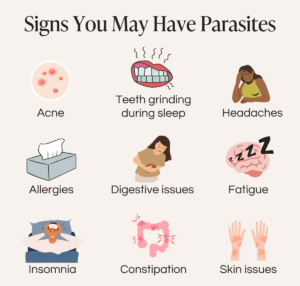Stomach parasites are a common but often overlooked cause of digestive issues, affecting millions of people worldwide. These parasitic infections can cause a wide range of symptoms, from gastrointestinal discomfort and diarrhea to more severe conditions like malnutrition and anemia. Getting rid of stomach parasites usually involves a combination of medications, good hygiene practices, and sometimes dietary changes. In this blog, we will explore the most effective ways to treat stomach parasites, focusing on medications like Nitazoxanide 500 mg and other management strategies.
What are Stomach Parasites?
Stomach parasites, also known as gastrointestinal parasites, include various types of organisms like protozoa (e.g., Giardia, Entamoeba histolytica) and helminths (e.g., roundworms, tapeworms, hookworms). These parasites can be ingested through contaminated food and water, poor sanitation, or close contact with infected individuals or animals. Stomach parasites can thrive in the warm, moist environment of the intestines, where they reproduce and cause symptoms.
Common symptoms of stomach parasites include:
- Diarrhea
- Abdominal pain and cramping
- Bloating
- Fatigue
- Weight loss
- Anemia (in severe cases)
Causes of Stomach Parasites
- Ingestion of Contaminated Food or Water: Parasites such as Giardia lamblia and Entamoeba histolytica are often spread through contaminated water. Drinking untreated water from rivers, lakes, or poorly maintained water sources can increase the risk of infection.
- Poor Hygiene Practices: Inadequate handwashing, especially after using the bathroom, can contribute to the spread of stomach parasites. Children and those in crowded or unsanitary environments are at higher risk.
- Close Contact with Infected Individuals or Animals: Parasites like pinworms and hookworms can spread through direct skin contact or by touching surfaces contaminated with parasite eggs (e.g., soil, bedding, clothing).
- Traveling to High-Risk Areas: Certain countries and regions have a higher prevalence of stomach parasites due to poor sanitation and hygiene practices. Travelers to these areas are more likely to be affected.
How to Diagnose Stomach Parasites
Diagnosing stomach parasites typically involves stool analysis, blood tests, and other medical imaging techniques:
- Stool Test (Fecal Examination): This test is the most common method for detecting parasites in the stool. It can identify parasite eggs, larvae, or cysts. Multiple stool samples may be required to confirm the presence of parasites.
- Blood Tests: Some parasites (e.g., hookworms, roundworms) can be detected through blood tests that look for antibodies against the parasite.
- Imaging Studies: In cases where parasites have traveled beyond the intestines (e.g., liver or lungs), imaging studies like ultrasound or CT scans may help identify their presence.
Treatment for Stomach Parasites
The treatment for stomach parasites depends on the type of parasite and the severity of the infection. Medications like Nizonide (niclosamide) are commonly used to treat specific parasites. Here’s a closer look at the treatment options:
1. Nizonide (Niclosamide)
Nizonide is an antiparasitic medication used primarily to treat tapeworm infections, including infections caused by Taenia saginata and Taenia solium (tapeworms). It works by interfering with the metabolism of the parasite, leading to its death. Nizonide is usually administered in tablet form and prescribed for adults and children over a certain age.
Dosage and Administration:
- For adults: The typical dose is Nitazoxanide 200 mg taken twice daily for 3 days.
- For children: The dosage depends on their body weight and age and is usually adjusted accordingly.
- It is essential to follow your healthcare provider’s instructions regarding dosage and duration of treatment.
Side Effects: The most common side effects of Nizonide include nausea, vomiting, headache, abdominal discomfort, and dizziness. These side effects are generally mild and temporary.
2. Albendazole and Mebendazole
For infections caused by roundworms, hookworms, and whipworms (e.g., Ancylostoma duodenale, Necator americanus), Albendazole (Albenza) and Mebendazole (Vermox) are more commonly used. These medications interfere with the energy metabolism of the parasite, leading to its death. They are typically used for 1-3 days.
- Albendazole can be taken orally, while Mebendazole is available over-the-counter.
- These medications can cause mild side effects, such as abdominal pain, nausea, and dizziness.
3. Ivermectin
Ivermectin is used to treat infections caused by parasitic worms, including river blindness (onchocerciasis) and strongyloidiasis (threadworm infection). It works by paralyzing the parasites, allowing the immune system to eliminate them. Ivermectin is usually taken orally in a single dose.
- It can cause side effects like skin rash, swelling, and itching. It should not be used by pregnant or breastfeeding women unless prescribed by a healthcare provider.
Natural Remedies to Support Recovery from Stomach Parasites
While medications like Nizonide are essential in treating stomach parasites, there are natural remedies and lifestyle practices that can help support recovery:
1. Good Hygiene Practices
- Frequent handwashing with soap and water, especially after using the bathroom and before eating.
- Avoid consuming raw or undercooked foods and untreated water.
- Clean fruits and vegetables thoroughly before consumption.
2. Probiotics
- Probiotics like yogurt, kefir, or supplements can help maintain a healthy gut microbiome, supporting digestion and immune function. This can help prevent secondary infections after treating parasites.
3. Dietary Fiber
- Incorporate more fiber-rich foods like fruits, vegetables, whole grains, and legumes into your diet. High-fiber foods can promote regular bowel movements, thereby reducing the risk of parasite infestations.
4. Garlic and Turmeric
- Garlic and turmeric are known for their antibacterial and antifungal properties. Including them in your diet may help support the body’s immune system and fight off infections.
5. Coconut Oil
- Coconut oil has antimicrobial properties that can help fight parasites. Adding a tablespoon of coconut oil to your daily diet can support gut health and digestion.
Conclusion
Stomach parasites can be a significant health concern, but with the right diagnosis and treatment, most infections can be effectively managed and eliminated. Nizonide (niclosamide) is an effective medication for treating tapeworm infections, while other medications like Albendazole and Ivermectin can treat a broader range of parasitic infections. Natural remedies and good hygiene practices can also play a crucial role in supporting recovery and preventing future infections.
If you suspect you have a stomach parasite or are experiencing symptoms like gastrointestinal discomfort, diarrhea, abdominal pain, or unexplained weight loss, it’s essential to consult a healthcare provider promptly. They can perform the necessary tests and prescribe the appropriate medication to help you get back to good health.
Always take medications like Nizonide (niclosamide) exactly as prescribed by your healthcare provider to ensure safe and effective treatment.







